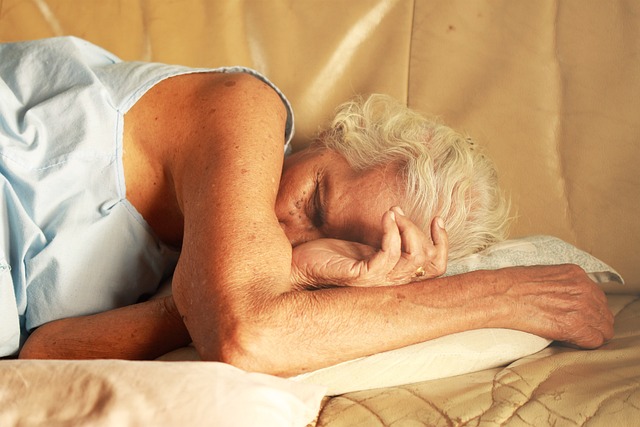As we grow older, a good night’s sleep can become elusive. For many seniors, sleep disturbances like insomnia, early morning awakenings, and restless nights become more frequent. While aging naturally affects sleep cycles, chronic sleep deprivation is not normal and it shouldn’t be ignored. Sleep is essential at every age, but as we grow older, getting a full night’s rest can become more difficult. Many seniors experience lighter sleep, frequent awakenings, and daytime fatigue. While some changes in sleep patterns are normal with age, chronic sleep deprivation is not.
Poor sleep in seniors is often linked to physical health issues, emotional stress, and lifestyle habits. Fortunately, with the right knowledge and approach, better sleep is within reach.
Common Causes of Sleep Problems in Seniors
Sleep difficulties in older adults are usually caused by a combination of biological changes and external factors. Understanding these can help you address the root of the problem rather than just the symptoms.
1. Changes in Sleep Architecture
As we age, we spend less time in deep, restorative stages of sleep. Older adults tend to wake up more often during the night and may experience shorter sleep cycles.
2. Circadian Rhythm Shifts
Many seniors experience earlier sleep and wake times. This is known as advanced sleep phase syndrome. While not inherently problematic, it can lead to early awakenings and daytime fatigue if bedtime is too early.
3. Chronic Health Conditions
Common age-related conditions that affect sleep include:
-
Arthritis or joint pain
-
Diabetes
-
Heart disease
-
Respiratory disorders
-
Neurological conditions such as Parkinson’s or Alzheimer’s
4. Sleep Disorders
Some seniors may unknowingly suffer from sleep disorders such as:
-
Sleep apnea
-
Restless leg syndrome (RLS)
-
Periodic limb movement disorder (PLMD)
These disorders often go undiagnosed but are treatable.
5. Mental Health Concerns
Anxiety, depression, grief, and social isolation are common in older adults and are closely linked to insomnia and fragmented sleep.
6. Medication Side Effects
Many seniors take multiple prescriptions, some of which can interfere with sleep by causing drowsiness during the day or increasing night time awakenings.
The Importance of Quality Sleep for Seniors
Getting enough restful sleep is vital for maintaining good health in older age. Poor sleep can contribute to:
-
Memory issues and cognitive decline
-
Increased risk of falls
-
Weakened immune system
-
Mood disorders like depression and anxiety
-
High blood pressure and heart disease
Sleep is not a luxury it’s a health necessity.
Strategies for Improving Sleep Naturally
1. Maintain a Consistent Sleep Schedule
Wake up and go to bed at the same time every day to reinforce your body’s natural sleep-wake cycle.
2. Develop a Relaxing Bedtime Routine
Establish a calming ritual before bed, such as reading a book, taking a warm shower, or practicing breathing exercises.
3. Avoid Screen Use in the Evening
Blue light from TVs, tablets, and phones can interfere with melatonin production. Avoid screens for at least one hour before bed.
4. Limit Caffeine and Alcohol
Both substances can interfere with sleep quality. Try to avoid caffeine after midday and minimize alcohol consumption in the evening.
5. Eat Light at Night
Large meals close to bedtime can cause discomfort and disrupt sleep. If you’re hungry, opt for a light snack like yogurt or a banana.
6. Reduce Fluid Intake in the Evening
Cutting back on fluids after dinner can help reduce night time trips to the bathroom.
7. Get Exposure to Natural Light
Daylight exposure, especially in the morning, helps regulate circadian rhythms and improves night time sleep.
8. Exercise Regularly
Physical activity, even just 20–30 minutes of walking a day, can help improve sleep. Avoid exercising too close to bedtime.
9. Make Your Bedroom Sleep-Friendly
Keep your room dark, quiet, and cool. Use blackout curtains, white noise machines, or a fan if necessary.
10. Reserve the Bed for Sleep
Avoid working, watching TV, or using your phone in bed. This helps your brain associate the bed with rest only.
11. Try Relaxation Techniques
Deep breathing, progressive muscle relaxation, and meditation can help reduce anxiety and prepare your mind for sleep.
12. Get Out of Bed if You Can’t Sleep
If you’re awake for more than 20 minutes, get up and do a quiet activity in dim light until you feel sleepy again.
13. Monitor Your Medications
Consult your healthcare provider to review your prescriptions. Some medications can interfere with sleep and may need to be adjusted.
14. Treat Underlying Conditions
Conditions like sleep apnea or chronic pain can worsen sleep quality. Proper treatment can significantly improve rest.
15. Consider Cognitive Behavioral Therapy for Insomnia (CBT-I)
This non-drug therapy is highly effective for treating chronic insomnia in older adults and focuses on changing thoughts and behaviors that interfere with sleep.
You should consult a healthcare provider if
-
You snore loudly or gasp during sleep
-
You experience frequent night time awakenings
-
You feel excessively sleepy during the day
-
Sleep problems interfere with your daily life or mental health
A sleep study or consultation with a sleep specialist may be necessary to diagnose and treat conditions like sleep apnea or insomnia.
While it’s common for sleep to change with age, chronic sleep problems in seniors are not inevitable. By developing healthy sleep habits, managing health conditions, and seeking medical guidance when needed, older adults can improve both the quantity and quality of their sleep.
Restful nights are possible and they are essential for healthy aging.


